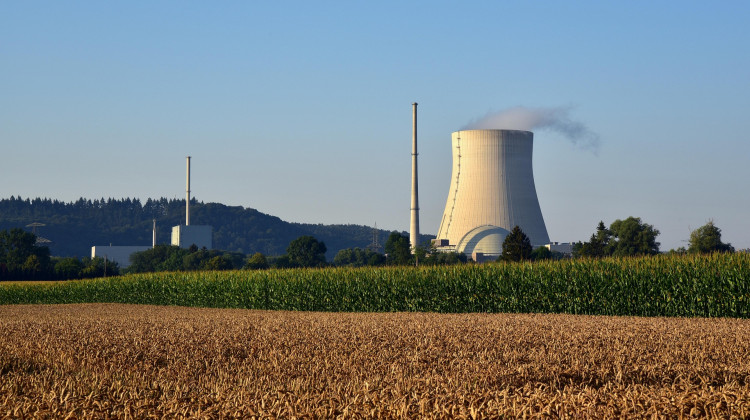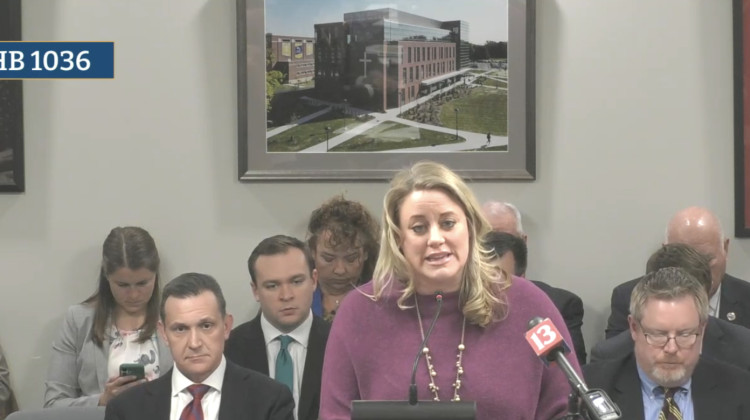
Environmental Protection Agency (EPA) Administrator Michael Regan speaks during an event, Monday, Dec. 20, 2021, outside the EPA Headquarters, in Washington. In the first first major action to address toxic wastewater from coal-burning power plants, the Environmental Protection Agency is denying requests by three Midwest power plants to extend operations of leaking or otherwise dangerous coal ash storage ponds.
(AP Photo/Jacquelyn Martin, File)By MATTHEW DALY Associated Press
WASHINGTON (AP) — The Environmental Protection Agency is taking its first major action to address toxic wastewater from coal-burning power plants, denying requests by three Midwest power plants to extend operations of leaking or otherwise dangerous coal ash storage ponds.
Plants in Indiana, Ohio and Iowa will have to close the coal ash ponds months or years ahead of schedule, the EPA said Tuesday, citing deficiencies with groundwater monitoring or cleanup.
Coal ash, the substance that remains when coal is burned to generate electricity, contains a toxic mix of mercury, cadmium, arsenic and other heavy metals. It can pollute waterways, poison wildlife and cause respiratory illness among those living near massive ponds where the waste is stored.
A fourth industrial site, at a former coal-power plant in New York State that now burns natural gas, is ineligible for an extension and also will be forced to close early, the EPA said. A separate coal-powered plant in Kentucky will be required to fix groundwater monitoring as a condition for continued operation of its coal ash pond, the agency said.
The actions mark the first time the EPA has enforced a 2015 rule aimed at reducing groundwater pollution from coal-fired power plants that has contaminated streams, lakes and underground aquifers.
U.S. coal plants produce about 100 million tons (90 million metric tons) annually of ash and other waste.
The Obama administration regulated the storage and disposal of toxic coal ash for the first time, including a requirement to close coal-ash dumping ponds that were unstable or contaminated groundwater. The Trump administration weakened the Obama-era rule in 2020, allowing utilities to use cheaper technologies and take longer to comply with pollution reduction guidelines that are less stringent than what the agency originally adopted.
EPA Administrator Michael Regan said the actions announced Tuesday will ensure that coal ash ponds meet strong environmental and safety standards and that operators of industrial facilities are held accountable.
“I’ve seen firsthand how coal ash contamination can hurt people and communities,'' said Regan, a former North Carolina environmental regulator who negotiated with Duke Energy what state officials say was the largest cleanup agreement for toxic coal ash.
“For too long, communities already disproportionately impacted by high levels of pollution have been burdened by improper coal ash disposal,'' Regan said. “Today’s actions will help us protect communities and hold facilities accountable. We look forward to working with our state partners to reverse damage that has already occurred.''
In separate letters sent Tuesday, EPA denied requests for extensions of coal ash permits by the Clifty Creek power plant in Madison, Indiana; James M. Gavin plant in Cheshire, Ohio; and the Ottumwa plant in Ottumwa, Iowa.
The Greenidge Generation plant in Dresden, N.Y., was ruled ineligible for an extension. The former coal plant now uses natural gas.
Conditional approval was granted to the H.L. Spurlock plant in Maysville, Ky.
Lisa Evans, a senior attorney for the environmental group Earthjustice, said the enforcement action "sends a strong message to industry that (compliance with the EPA rule) is not a paperwork exercise. It requires them to clean up these toxic sites.''
Data released by utilities in 2018 showed widespread evidence of contamination at coal plants from Virginia to Alaska.
 DONATE
DONATE






 Support WFYI. We can't do it without you.
Support WFYI. We can't do it without you.